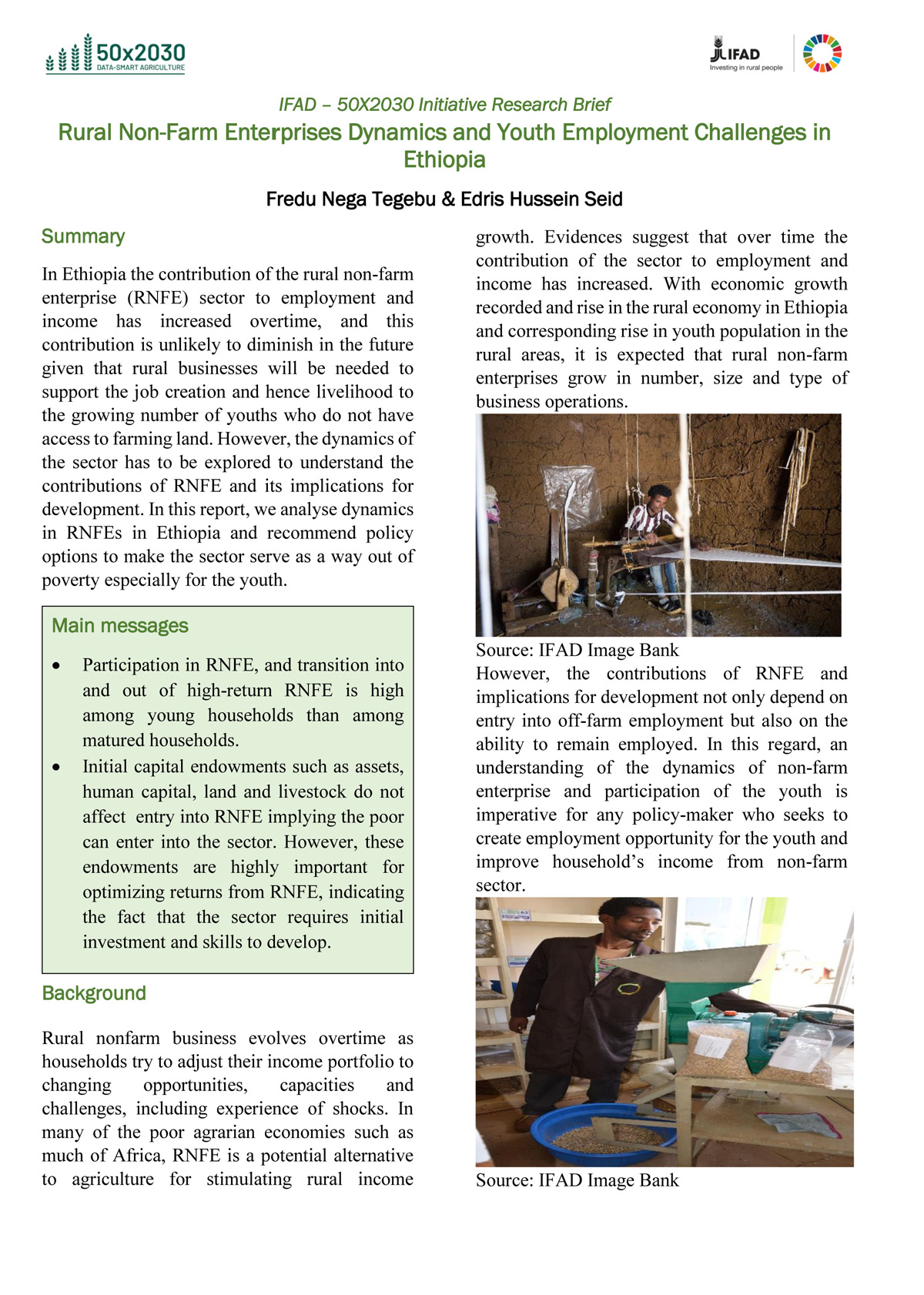Rural Non-Farm Enterprises Dynamics and Youth Employment Challenges in Ethiopia
IFAD – 50X2030 Initiative Research Brief

In Ethiopia the contribution of the rural non-farm enterprise (RNFE) sector to employment and income has increased overtime, and this contribution is unlikely to diminish in the future given that rural businesses will be needed to support the job creation and hence livelihood to the growing number of youths who do not have access to farming land. However, the dynamics of the sector has to be explored to understand the contributions of RNFE and its implications for development. In this report, we analyse dynamics in RNFEs in Ethiopia and recommend policy options to make the sector serve as a way out of poverty especially for the youth. Rural nonfarm business evolves overtime as households try to adjust their income portfolio to changing opportunities, capacities and challenges, including experience of shocks. In many of the poor agrarian economies such as much of Africa, RNFE is a potential alternative to agriculture for stimulating rural income growth. Evidences suggest that over time the contribution of the sector to employment and income has increased. With economic growth recorded and rise in the rural economy in Ethiopia and corresponding rise in youth population in the rural areas, it is expected that rural non-farm enterprises grow in number, size and type of business operations. However, the contributions of RNFE and implications for development not only depend on entry into off-farm employment but also on the ability to remain employed. In this regard, an understanding of the dynamics of non-farm enterprise and participation of the youth is imperative for any policy-maker who seeks to create employment opportunity for the youth and improve household’s income from non-farm sector.
